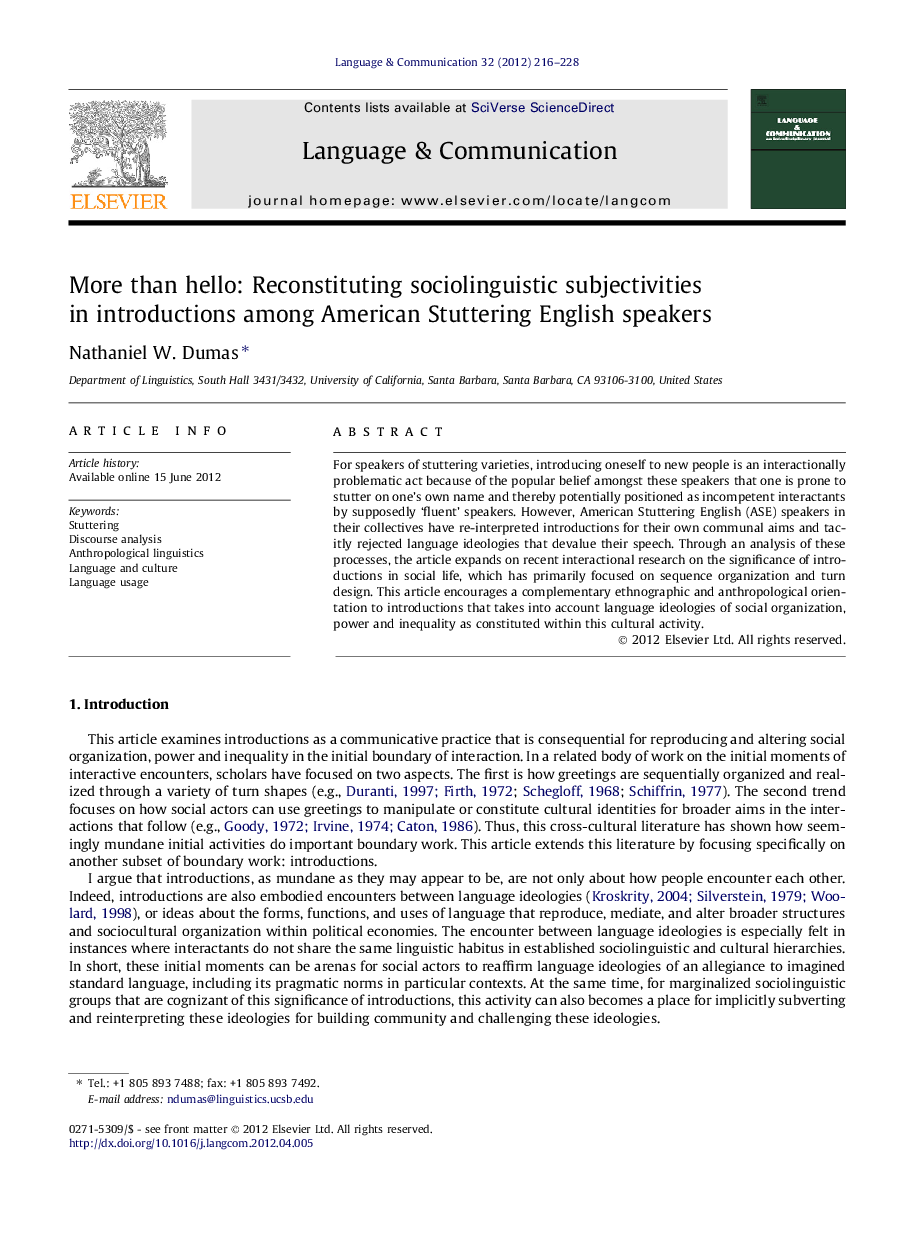| Article ID | Journal | Published Year | Pages | File Type |
|---|---|---|---|---|
| 934782 | Language & Communication | 2012 | 13 Pages |
For speakers of stuttering varieties, introducing oneself to new people is an interactionally problematic act because of the popular belief amongst these speakers that one is prone to stutter on one’s own name and thereby potentially positioned as incompetent interactants by supposedly ‘fluent’ speakers. However, American Stuttering English (ASE) speakers in their collectives have re-interpreted introductions for their own communal aims and tacitly rejected language ideologies that devalue their speech. Through an analysis of these processes, the article expands on recent interactional research on the significance of introductions in social life, which has primarily focused on sequence organization and turn design. This article encourages a complementary ethnographic and anthropological orientation to introductions that takes into account language ideologies of social organization, power and inequality as constituted within this cultural activity.
► Introductions are ideological activities that reproduce sociolinguistic inequality. ► I examine how a sociolinguistic minority reinterprets the norms of introductions. ► American Stuttering English speakers use introductions to perform complex personhood. ► Complex personhood contrasts with how these speakers are often essentialized. ► Introductions are tacitly consequential for shifting identities and power.
